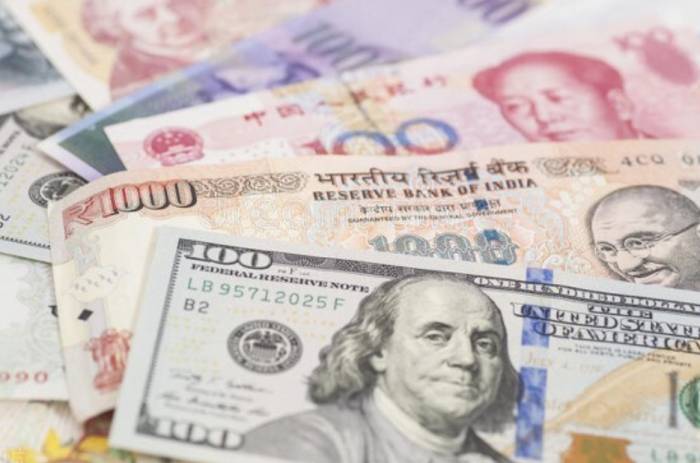Saudi Arabia has rejected the United States' demand for a significant collective reduction in oil production, which could lead to another surge in international oil prices. Why are the world's major oil-producing countries now starting to band together to reduce oil production, showing no regard for the United States? Are they really not afraid of American hegemony? What exactly has happened?
We all know that the United States has been exerting great effort this year to vigorously develop its domestic economy. To boost the U.S. economy, controlling inflation is the primary mission. As a result, we have seen that since the beginning of this year, the U.S. dollar has been continuously raising interest rates, disregarding the interests of other countries and harvesting the wealth of the world.
President Biden even humbled himself by going to the Middle East, asking Saudi Arabia to increase oil production. The clear intention of the United States was to ask the whole world to help reduce U.S. inflation. However, Saudi Arabia, through years of cooperation with the United States, has actually seen through the true face of the U.S., and due to face-saving, originally planned to increase oil production by 500,000 barrels per day, but later it turned into a perfunctory increase of only 100,000 barrels per day.
Seeing that this approach was not working, the high inflation in the United States was still uncontrollable. The U.S. then began to heavily release domestic strategic oil reserves. While demanding that OPEC increase oil production, the U.S. was also heavily releasing its own strategic oil reserves, even calling on India and China to release their reserves to lower oil prices and reduce the cost of economic recovery.
Thanks to the U.S. efforts, the international oil price was finally controlled at $76 per barrel. However, this price has already broken the psychological bottom price of the OPEC organization, as their expected price was $90 per barrel.
Seeing this situation, Saudi Arabia realized that the U.S. was harvesting its core interests, so it tore off its face, not giving any face to the U.S., and decided not to increase oil production but to plan a reduction for the interests of the oil-producing countries themselves. Because if oil production is not reduced, the market may collapse, and the oil price may fall to $50 per barrel. This call received unanimous agreement from all oil-producing member countries.
Now, the OPEC organization and non-OPEC oil-producing countries have jointly decided to reduce oil production by 2 million barrels per day starting from November, with the deadline being the end of December 2023. This is the largest oil reduction measure since the pandemic, equivalent to about 2% of the global oil demand.
This is completely unexpected for the U.S., as they originally thought the maximum reduction would be 1 million barrels, but now it has doubled. Some American media have indicated that this move could lead to a surge in oil prices, which would further pressure U.S. inflation.
Next, let's talk about why Saudi Arabia dares to confront the United States and get closer to Russia?
We must not forget that among the OPEC+ member countries, Saudi Arabia and Russia are the most important members. Saudi Arabia's actions are clearly confronting the United States and supporting Russia!Delving into the reasons, first and foremost, it is the actions of the United States in recent years that have left most countries utterly disappointed, and everyone has seen it with their own eyes.
Was the Russia-Ukraine conflict instigated by the United States? The strong dollar interest rate hikes to reap global wealth is even more self-evident, isn't it? Even the European Union, a close ally of the United States, has been staunchly supporting the U.S., but what has been the outcome? Due to the shortage of natural gas and electricity in Europe, the United States is now undermining the EU by luring away its major corporations and then selling natural gas to Europe at high prices, making a substantial profit of 150 million dollars per ship.
Therefore, Saudi Arabia does not wish to get too close to the United States, as it is aware that the U.S. can turn its back on its allies, and the closer one gets, the greater the harm will be in the end.
Secondly, the economic recession in Western countries is inevitable.
The U.S. national debt has reached an all-time high, surpassing the critical point of 31 trillion dollars, equivalent to 1.36 times the U.S. GDP in 2021, and even more than the combined economic output of China, Japan, Germany, and the United Kingdom in 2021. Based on the U.S. population of 330 million, this equates to an average debt of over 90,000 U.S. dollars, or 600,000-700,000 yuan per person. How can the United States repay such a massive debt? The key issue is that the high inflation in the U.S. is not subsiding, and continuous interest rate hikes in the dollar could further increase the risk of an economic recession in the United States.
Let's also take a look at the situation in the European Union. Due to sanctions against Russia, there is a severe natural gas and electricity crisis, and now, with the U.S. undermining and exploiting the EU, there will be an impending oil crisis. The key is also to maintain the stability of the euro. Under these circumstances, how can the EU's economy be in good shape?
Since the economic recession in Western countries is inevitable, if Saudi Arabia continues to strongly support them, it will only end up being stripped of its own resources. Is Saudi Arabia foolish? This is also the ultimate reason why Saudi Arabia and OPEC+ dare to confront the United States.
On the contrary, these oil-producing countries, such as Saudi Arabia, Iran, Argentina, and Egypt, all want to leverage their relationship with Russia to join the BRICS countries and get closer to China. After all, China's economy is stable, and its development potential is strong.
Looking back, what will the United States do next?
Continue to release strategic petroleum reserves? If the United States chooses to continue and increase the release of strategic petroleum reserves, how long can it last? At that time, the United States will undoubtedly face security issues with its oil, and this path is not a long-term solution.So, what about increasing oil production within the United States? We must recognize that the vast majority of oil companies in the U.S. are owned by private individuals who will undoubtedly prioritize their profits. If international oil prices soar, domestic U.S. oil prices will inevitably rise as well. Why would they go against their financial interests? Therefore, while it is possible for the U.S. to boost its domestic oil production, it is highly unlikely that they can reduce the price of oil.
In the end, the U.S. may very well resort to unconventional methods to sway oil-producing countries with less resolve. However, speaking of which, the U.S.'s global influence has significantly diminished. If countries start to unite and support each other, it remains to be seen whether the U.S. can achieve its goals.
It's somewhat comical to think that the U.S. is selling natural gas at high prices to Europe, and now Saudi Arabia is selling oil at high prices to the U.S.
Nevertheless, as international oil prices surge, the price of oil in our country will inevitably rise as well, given that we are one of the world's largest oil importers. However, with Russia, Iran, and even Saudi Arabia potentially settling oil trade in Chinese yuan, the increase in our country's oil prices will not be as drastic as that in Western countries.





























